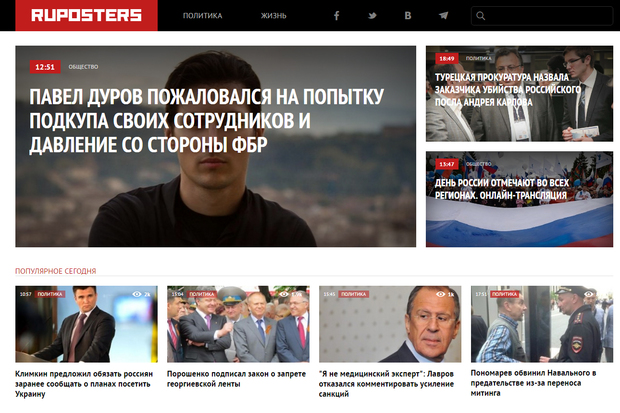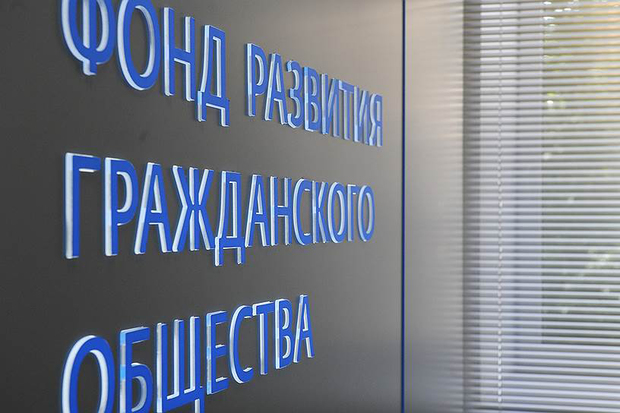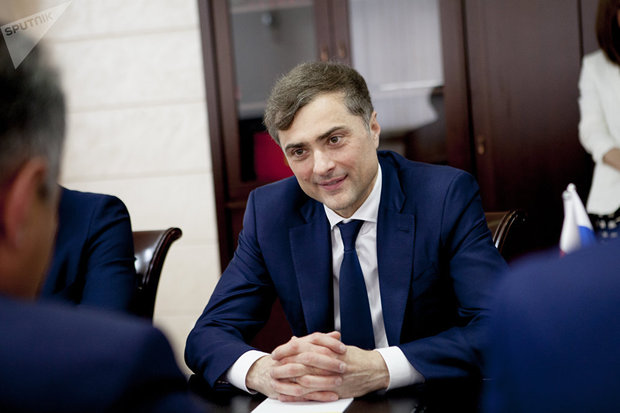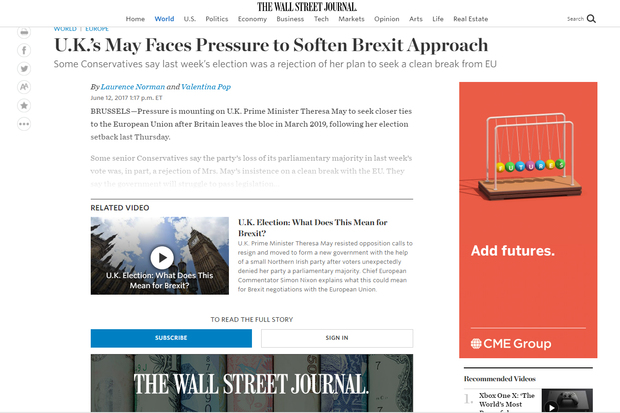Stanislav Apetyan: ''My affiliation with structures close to the Kremlin is in sight''
Why is the education at a journalistic department a profanation and the modern concept of journalism in Russia is a self-deception? Whta is the reason why a person who is engaged in politics has no right to be vulnerable and touchy? Whether it is right to associate Vladislav Surkov with the socio-political resource Ruposters? Why one should thank not the Russian government but the cellular operators for the hype around deanonymization and limitations of the messengers? In order to get answers to these questions Realnoe Vremya contacted CEO of Ruposters, political scientist Stanislav Apetyan, known in the Russian Internet as the creator of Politrash.ru.
''I am very sceptical about what education is given at this department''
Stanislav, could you tell us about your project Ruposters — what is the concept and how it is fundamentally different from online media?
In general, this project appeared in a natural way. Originally, it was not intended as media, it was conceived as an aggregator of socio-political publications. Then, when we saw that it was really attracting live traffic (primarily the audience of patriotic orientation), we began to develop and expand its content side: more news and exclusive content started to appear. The result was a concept, which can be described as Russian Breitbart, but with certain nuances.
Rusposters is certainly not an online newspaper. It is clear that it is media from a global point of view, however, I don't want to mess with some deep understanding of the word ''journalism'' that exists in Russia today. I don't like it. I believe that it is a self-deception, exaggeration of own importance as a producer of content. In this sense, we are not engaged in journalism. The understanding of the word is not close to me, unfortunately, this word is being imposed in journalistic departments. We are primarily engaged in the production of socio-political content as well as entertainment. We do content that is in demand by our audience, especially in social networks. It is the whole concept of the resource in general. We do not pretend to be enlighteners. When people start talking about journalism as ''the fourth power'' and so on — it is not about us.

We are primarily engaged in the production of socio-political content as well as entertainment. We do content that is in demand by our audience, especially in social networks. It is the whole concept of the resource in general
I can't tell that I'm completely satisfied with the resource for today. This year it will be changed technologically and in content — a restart is likely to happen in July. Everything will be new, including the engine, editorial management and resource management system. I will not announce the points regarding the editorial policy — the reader will see it by themselves. I am not engaged in global editorial issues and do not control publications. I rather deal with issues that are the responsibility of director, not editor.
Are there many professional journalists and people with journalistic diploma in your team? Or you do not recruit such people as a matter of principle?
There were not such people for a long time, but now, if I'm not mistaken, in the editorial board there are people who is a graduate of journalistic department. To be honest, I am very sceptical about what education is provided at this department. I believe that this is a profanation. I see in this specialisation no added value. Absolutely anything they teach in journalistic departments during several years, you can learn within two to three months from the point of view of real practical skills, working in online media. Everything else is a basic humanitarian education that can be obtained without graduating a journalistic department.

''Now I am an employee of the Fund of development of civil society, and it is no secret for anybody that this fund is one of the closest to the Kremlin analytical organisation engaged in politics, regional studies and so on.'' Photo: rv-mo.ru
''My affiliation with these structures is in sight. I am in no way deny that''
Stanislav, what education do you have and how it has brought you to the media?
I graduated from the department of political science of the HSE and, accordingly, worked in this area. Ruposters is not the main media project I do. My main activity is connected with the fact that, as a political strategist, I lead campaigns and work as an analyst in the Fund of development of civil society. My professional biography is directly connected with my education.
You have been reproached for an affiliation with the Kremlin. As I understand it, the cooperation continues?
I was a member of the presidential administration for one and a half years before I had a blog and in this sense I has never concealed my biography and a kind of affiliation, which, of course, every person has. So, one can call me whatever they like, but I see nothing bad in this.
Now I am an employee of the Fund of development of civil society, and it is no secret for anybody that this Fund is one of the closest to the Kremlin analytical organisation engaged in politics, regional studies and so on. My affiliation with these structures is in sight. I am in no way deny that.
''If the media does not adapt to ever-changing environment, it dies. But we are not going to die''
Stanislav, we have deviated from the discussion of your resource. Could you tell us how successful the project is?
There are many criteria of success, some of them satisfy me and some of them not. Generally, I am satisfied with the traffic of the resource — it is going in the framework of my expectations, which were formulated last year. As for citation and coverage, I am not satisfied with these figures. The changes that will be introduced in the summer, they are aimed at correcting those things that do not suit me. This is a step in the right direction, intended to brand this resource and to make it more recognizable. We will see if it will work or not. It is obvious that if the media does not adapt to ever-changing environment, it dies. But we are not going to die.
If it is not a secret, who supports Ruposters? Are there some external force outside of the edition that can influence the agenda of the publication?
As for external forces, it is only me. I can influence the resource on the basis of some goals and objectives not directly related to this resource. Some other people do not influence. They can affect me, but in general… Yes, I can have certain goals and tasks that lie in the field of media, and they lie, for example, in the field of electoral campaigns.
In my opinion, if a person says that there is no external influence at all, it is a blatant hypocrisy and lie. In any case, any publication has some stories that are somehow connected with shareholders, their interests and objectives. That's ok because the media in Russia is not the coolest business from the point of view of making money. In order the media had some kind of economic feasibility, they have to solve some tasks in addition to attracting advertising budgets.

''Surkov does not have any relationship to the resource absolutely. If I'm not mistaken, the resource appeared after he left the administration of the President.'' Photo: sputnik-ossetia.ru
Who acts as the investor of the resource?
The investor in this case is me. The resource exists at the expense of advertising incomes, as well as the income that I provide, pursuing some my own interests, which lie in the area of political and public relations campaigns. I tell about it openly because, frankly speaking, I am sick and tired of the hypocrisy and absolute nonsense on the media market when the obvious things are not being told, although everyone knows them perfectly.
Somewhere I have seen the conjecture that Vladislav Surkov could support your resource.
It's very funny, but no, of course, Surkov does not have any relationship to the resource absolutely. If I'm not mistaken, the resource appeared after he left the administration of the President. Actually, the last time I have seen Surkov is at Putin's inauguration and that's it.
Back to the question of the existence and survival: what do you think about paywall in the Russian media?
I think that this is absolutely not promising for Russia model of content monetization. I don't believe that it can actually work and provide sufficient income. Paywall can close specific information that does not relate to the main interests of the reader — in this case, paywall can work. For example, a special edition dedicated to metallurgy, and there is the audience for whom it is difficult to find this content anywhere else. But if you do some socio-political or business media, it is stupid to be closed with paywall because this information is easy to find on other sites.

Russia does not have the same powerful media brands like in the States where the publication due to its reputation and long history is closed with paywall
The Russian audience does not like to pay for content, especially when there is so much free content. It is very difficult to explain to our people why they should give their money when on the Internet there are so much free websites. Besides, Russia does not have the same powerful media brands like in the States where the publication due to its reputation and long history is closed with paywall.
The recent scandal with nopaywal has revealed the absolute inferiority of this system. This situation has demonstrated that the content may be stolen, given to the public access to implement final monetization, the channel of nopaywal includes advertising, and, most probably, the authors get money for it. This is an obvious signal to those publications that are thinking of whether to introduce this model or not.
''The ''ears" of this story should be looked for not in the Kremlin''
Stanislav, in one of your interviews you said that at the time when you created the project, the ''patriotic'' niche of the media in Russia was empty. Has the situation changed in 2017?
The situation has changed dramatically. Since about 2013, the patriotic audience has greatly expanded at the expense of the middle and older age groups, as well as medium and small cities in the country. Naturally, the media also began to adapt to the audience.
During our conversation you have expressed quite a negative attitude to the education at journalistic departments. What do you think about Russian journalism in general?
You know, I don't really like it when journalists take on more than they can, in the sense that the task of journalists, in my understanding, is not a positioning as a sort of moral standard and authority. Journalists should just do their job, namely to produce high-quality and demanded content.

''We understand that the messengers destroy operators. It lies on the surface. Imagine what the losses our ''big three'' suffer because of WhatsApp and Telegram.'' Photo: gisher.ru
What Russian media do you respect and which of them you genuinely despise?
I do not despise anyone, to be honest. I don't want to offend somebody. As for my media consumption, it has long gone from some brands of publications. There is no such thing that I read a particular media. I read adapted to my interests feed – it is Facebook, Twitter and recently, of course, Telegram. Honestly, by promptness and quality of the content our mass media, which consume a huge amount of money, they often lose to telegram channels. It is more interesting for me to read telegram channels.
By the way, Stanislav, what do you think about this whole hype with the messengers, deanonimyzations and equating telegram-channels to the media, as they did with blogging?
I'm a big opponent of these changes. To be honest, I don't understand what threat can be to the government from the telegram channels. If I was the authorities, I'd be worried for the telegram channels least of all. In general, everything is ok there. But I would be worried for YouTube, but with Telegram everything is normal.
Actually, I fully admit that the ''ears'' should be looked for not in the Kremlin or in the government, not the FSB, for example. One should pay attention to the cellular operators. We understand that the messengers destroy operators. It lies on the surface. Imagine what the losses our ''big three'' suffer because of WhatsApp and Telegram.